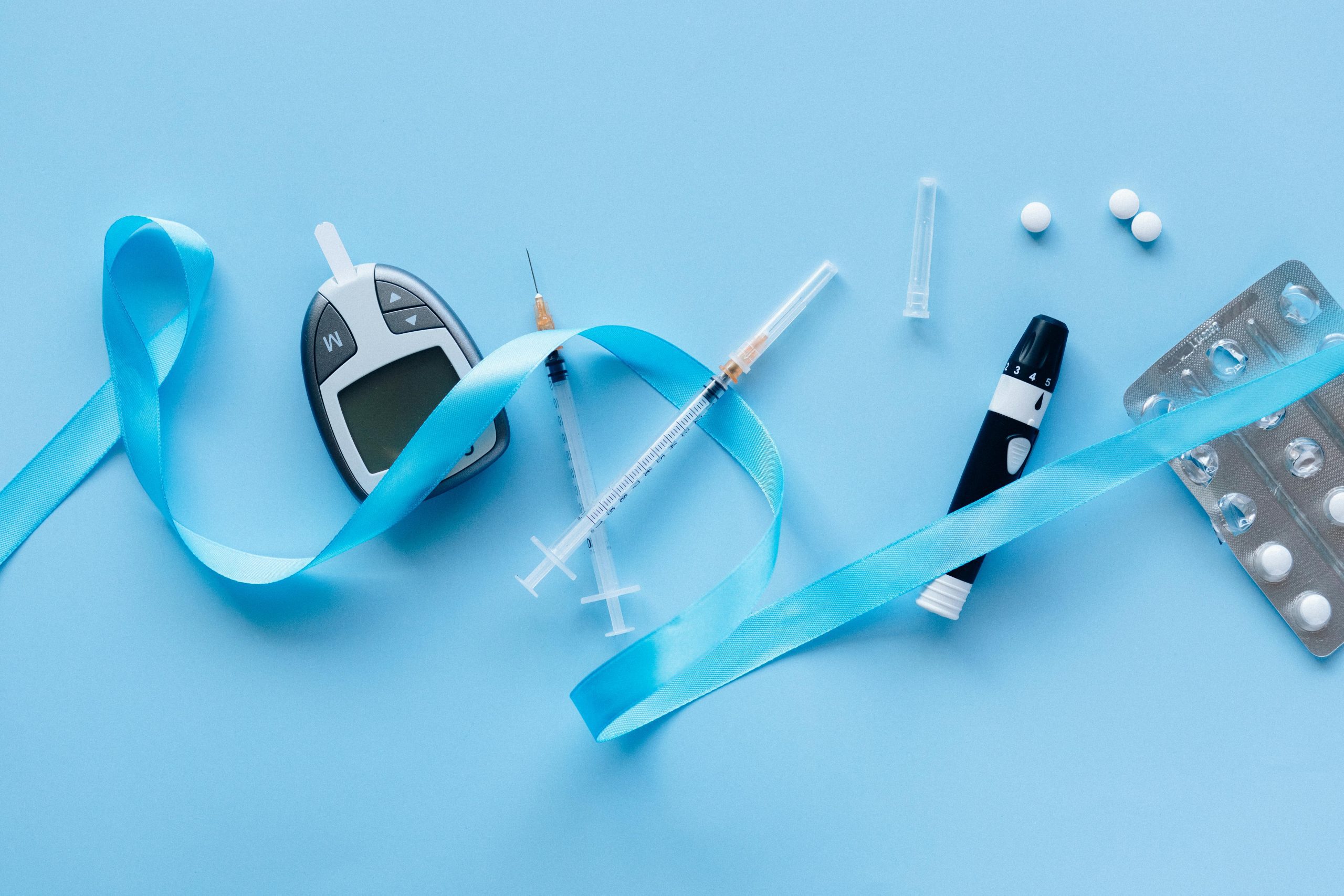What is Hyperinsulinemia: Symptoms, Causes, and Treatment.

Have you ever noticed dark patches on your neck or under your arms? Or your blood test showed high insulin levels. Or have you been struggling with sudden sugar cravings or easy weight gain? These could all be early signs of a condition called Hyperinsulinemia. So, what is Hyperinsulinemia? Hyperinsulinemia is one of such health conditions that usually goes unnoticed by many of us because it develops silently. If the condition is ignored, it may increase the chance of diabetes, weight gain, heart problems, or hormonal issues like PCOS.
This blog explains what hyperinsulinemia is, its causes, how it is diagnosed, and how it can be treated. It aims to provide you with clear and helpful information so you can take better care of your health and prevent complications.
What is Hyperinsulinemia?
We all know that Insulin is a hormone produced by the pancreas, which usually helps regulate blood sugar by moving glucose into the body’s cells to be used for energy, thereby preventing blood sugar levels from becoming too high.
Hyperinsulinemia is a condition where the amount of insulin in your blood rises above normal, which can lead to insulin resistance. This happens when your muscle, fat, and liver cells don’t respond well to insulin. To keep blood sugar in check, the pancreas works harder and makes extra insulin, which raises insulin levels in the blood.
In the early stages of hyperinsulinemia, blood sugar levels may still appear normal despite the high insulin. Still, over time, the constant strain on the pancreas can lead to rising blood sugar levels. If it is left unchecked, this condition can develop into prediabetes and type 2 diabetes.
| Key Point: Hyperinsulinemia is not a disease by itself, but usually a sign of an underlying problem, most often insulin resistance. |
If you or a loved one is experiencing high insulin levels and is not sure about what this means, that is where Fitterfly steps in. You can schedule a personal one-on-one consultation with our in-house diabetologist, Dr. Vidya Walinjkar. She carefully analyses your case, explains the situation in detail, and guides you on the proper steps to take.
Click on the banner below.
What Are the Causes of Hyperinsulinemia?
There could be various causes why hyperinsulinemia develops. Some of them are as follows.
Metabolic and Lifestyle Factors:
- Obesity: Having too much fat, especially around the stomach, is one of the main reasons the body can become resistant to insulin.
- Unhealthy Diet: A high intake of refined carbohydrates, sugary foods, packaged foods, and unhealthy fats can cause frequent insulin spikes, which ultimately lead to hyperinsulinemia.
- Sedentary Lifestyle: Not exercising regularly can make the body more resistant to insulin and require more of it.
Medical and Surgical Causes:
- Insulinoma: It is a rare pancreatic tumour that produces too much insulin.
- After Gastric Bypass Surgery: Some people develop high insulin levels due to changes in body function and pancreatic activity after surgery.
Genetic and Autoimmune causes:
- Genetic Tendency: Some people are born with genetic changes that affect insulin production or its functions, which makes them more likely to have hyperinsulinemia.
- Autoimmune Conditions: Pancreas problems can upset insulin balance and cause high insulin levels.
Infectious and Environmental Factors:
- Chronic inflammation: Long-term inflammation can be triggered by infections or environmental stress, which may lead to increased insulin resistance, thereby indirectly contributing to hyperinsulinemia.
Is There a Connection Between Hyperinsulinemia, PCOS, and Weight Gain?
Let’s break it down to understand better. Hyperinsulinemia and PCOS: In PCOS(polycystic ovary syndrome), many women develop insulin resistance. To manage this, the pancreas releases more insulin, leading to hyperinsulinemia. High insulin then pushes the ovaries to produce more male hormone(androgens), which can worsen symptoms like irregular periods, acne, and excess hair growth.
Hyperinsulinemia and Weight Gain: Insulin is often called the body’s “storage hormone.” When levels stay high, the body tends to hold onto fat, usually around the belly, while burning it becomes harder, and this leads to weight gain, difficulty losing weight.
The Cycle: PCOS ↔ Hyperinsulinemia ↔ Weight Gain:
- PCOS causes insulin resistance → leading to Hyperinsulinemia.
- Hyperinsulinemia increases fat storage → causing weight gain.
- Weight gain worsens insulin resistance →which makes PCOS symptoms worse.
- This created a vicious cycle where PCOS, weight gain, and hyperinsulinemia keep making each other worse.
| However, the good thing is that there is a way to break the cycle. With balanced nutrition, regular exercise, and healthy weight management, it is possible to lower insulin levels, ease PCOS symptoms, and achieve weight loss. |
What Are the Risk Factors of Hyperinsulinemia?
Several risk factors are associated with hyperinsulinemia, some of which are
- Age and Gender: The risk increases with age, especially after 40 years, and some studies suggest that men may be at a higher risk than women.
- Geographic and Population factors: Certain populations living in certain areas have higher rates of obesity and metabolic disorders, making them more prone to hyperinsulinemia.
- Underlying Health Conditions: Conditions like metabolic syndrome, type 2 diabetes and polycystic ovarian syndrome(PCOS) are closely linked to hyperinsulinemia.
- Poor sleep and Sleep Apnea: Irregular sleep or untreated sleep apnea disturbs metabolism, increasing insulin resistance, and raises the risk of hyperinsulinemia.
What Are the Common Symptoms and Signs of Hyperinsulinemia?
Hyperinsulinemia typically begins without clear signs, but over time, the body exhibits small changes that can signal a problem.
Early and Silent Symptoms to Look Out For:
- Dark patches of skin and skin tags: One of the most visible early signs of insulin resistance is the appearance of dark patches on the skin, commonly found around the neck, armpits or back, and may feel slightly thicker than the surrounding skin. You may also notice small, soft growths known as skin tags. These usually appear in soft folds, like in the neck, armpits, or eyelids.
- Vision changes: Eye health can be affected, which leads to conditions such as diabetic retinopathy, especially as hyperinsulinemia progresses.
Symptoms as the Condition Progresses:
- Increased thirst and frequent urination: One of the classic signs as hyperinsulinemia progresses towards type 2 diabetes is feeling increased thirst and needing to urinate more frequently.
- Blurred vision and fatigue: Fluctuating blood sugar levels can directly affect the eyes and energy levels. High or unstable blood sugar levels may cause the lens of the eye to swell, leading to episodes of blurred vision. At the same time, because cells aren’t getting glucose efficiently, you may feel persistently tired, even after proper rest.
- Constant hunger: Despite eating regular meals, you may still crave more food. This constant hunger is a result of insulin resistance, where the body struggles to transport glucose into cells for use as energy. As a result, the brain receives signals that you are not getting enough fuel, which triggers an ongoing sense of hunger.
There are certain symptoms that may indicate the need for immediate medical help, such as:
- Severe Hypoglycemia: Symptoms such as confusion, sweating, shaking or fainting.
- Sudden Weight Loss: Unexplained weight loss without changes in diet or exercise.
- Continuous Tiredness: Extreme and continuous tiredness that doesn’t improve with rest.
Can Hyperinsulinemia cause low blood sugar?Low blood sugar levels in the body are known as hypoglycemia. In some cases, excess insulin in the body can lower the blood sugar levels too much, leading to sugar cravings, weight gain, difficulty concentrating, anxiety, and persistent fatigue despite taking proper rest and nutrition. If this continues unchecked, frequent hypoglycemic episodes further damage the pancreas and increase the risk of developing prediabetes and type 2 daibetes. |
What Are the Complications of Hyperinsulinemia?
If hyperinsulinemia is not treated or managed properly, it causes complications, and some of them are
- Prediabetes
- Type 2 Diabetes
- Weight gain and obesity
- Polycystic Ovary Syndrome
- High blood pressure
- Abnormal levels of cholestrol( Dyslipidemia)
- Increased risk of heart disease.
- Infertility
What is the Treatment for Hyperinsulinemia?
Strategies for Prevention and Management
If you notice any symptoms in your body, the first step is to consult a doctor to get your condition diagnosed and follow their advice. The goal of the treatment is to improve insulin sensitivity and reduce excess insulin production in the body. Management also involves a combination of lifestyle changes, medical care, and regular monitoring.
Lifestyle Changes:
Focus on a diet which is usually rich in fibre, protein, and healthy fats, and also avoid refined carbohydrates and added sugars. Engage in regular physical activities, which include both aerobic and strength training. Work towards maintaining a healthy weight.
Medical management:
- Doctors may prescribe medications to enhance insulin sensitivity.
- In rare cases, surgical removal of insulin-secreting tumours may be required.
Monitoring:
- Monitor your blood sugar and insulin levels through regular testing.
- Monitor related risk factors such as cholestrol, blood pressure, and body weight.
Preventive Approach:
If you have risk factors like obesity, PCOS, or a family history of diabetes, making lifestyle changes early can help prevent or delay the onset of hyperinsulinemia.
Fitterfly: Your Partner in Managing Hyperinsulinemia
Managing hyperinsulinemia requires more than just temporary fixes; it needs a complete and personalised approach. At fitterfly, we bring together advanced science, expert guidance, and technology to help you take control of your health in a sustainable way.
Here is How Fitterfly Supports You on Your Journey:
Personalised Nutrition Guidance:
Our expert nutrition coaches create customised meal plans as per your body’s needs. These plans focus on balanced nutrient intake, improving blood sugar management, and building healthy eating habits that last.
Customised Fitness Program:
Movement plays a key role in improving insulin sensitivity. Our fitness coaches design safe, effective exercise routines that match your lifestyle, fitness level, and health goals.
Continuous Glucose Monitoring(CGM) Insights:
With the help of CGM technology, Fitterfly gives you real-time insights into how your body responds to different types of foods, activities, stress and sleep, and these insights empower you to make smarter daily choices for better blood sugar control.
Expert Coaches at Every Step:
You are never alone on this journey. Our team of nutritionists, fitness experts, and success coaches work together to track progress, overcome challenges, and keep you motivated.
Why Choose Fitterfly?
At Fitterfly, we dont just manage symptoms, we also address the root causes of insulin resistance and hyperinsulinemia. Our complete approach combines science, technology, and expert care to help you live healthier, happier, and more in control. Start your journey with Fitterfly and move towards a healthier, more confident you.
This blog provides general information for educational and informational purposes only and shouldn't be seen as professional advice.
Frequently Asked Questions
What is Hyperinsulinemia?
Hyperinsulinemia is a condition where the body has higher-than-normal levels of insulin in the blood, and it generally happens when the body doesn’t respond well to insulin, so the pancreas makes extra to keep up.
What causes Hyperinsulinemia?
The common cause of hyperinsulinemia is insulin resistance, where cells dont respond to insulin. Other causes may include obesity, metabolic syndrome, genetic factors and rare pancreatic tumours.
Is Hyperinsulinemia the same as diabetes?
No. Hyperinsulinemia is not diabetes, but it is commonly linked to insulin resistance, prediabetes, and type 2 diabetes.
What are the symptoms of Hyperinsulinemia?
Symptoms of hyperinsulinemia are weight gain, constant hunger, fatigue, frequent sugar cravings, and, in some cases, low blood sugar episodes.
How is Hyperinsulinemia diagnosed?
Doctors use blood tests, such as fasting insulin levels, glucose tolerance tests, and HbA1c, to check blood sugar and insulin response
What foods should be avoided if I have hyperinsulinemia?
It is best to avoid sugary foods, refined carbohydrates, and processed foods.
What complications can hyperinsulinemia lead to?
If untreated, it can increase the risk of pre-diabetes, Type 2 diabetes, obesity, heart disease, and high blood pressure.





















